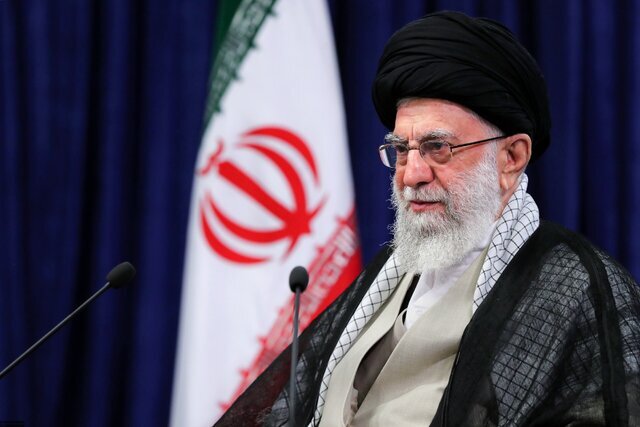TEHRAN – The Chinese-brokered deal between Iran and Saudi Arabia once again drew the attention to a vivid description by the Leader of the Islamic Revolution of U.S. negotiating principles.
After seven years of tensions, Iran and Saudi Arabia signed a joint statement with Chinese help to re-establish their diplomatic ties within two months. The deal took the world by surprise as it was made without any Western involvement.
Experts said the reason why China succeeded in clinching this deal is because China pay attention to the interests of all parties involved. In compassion, the U.S. would have only sought to dictate its demands on certain parties.
This American modus operandi was behind the failure of diplomacy with Iran. But instead of blaming America, some in the West pointed the finger of the blame at Iran, claiming that the Leader of the Islamic Revolution, Ayatollah Seyed Ali Khamenei, is opposing negotiation and diplomacy with the U.S.
The reality, however, is different. A few years ago when the concept of negotiation between Iran and the U.S. was in the news, Ayatollah Khamenei said that the U.S. does not negotiate. Instead, it often seeks to dictates its demands under the guise of negotiations.
“When America says let’s negotiate, it doesn’t mean that let’s find a fair solution. No, it means that let’s sit at the negotiating table and we [the Americans] say something and you accept it. That’s what they mean with negotiation,” Ayatollah Khamenei said.
The Leader further said the Americans often demand ransoms and concessions during negotiations, not just once, but all the time.
That’s may be the reason why Ayatollah Khamenei said time and again that negotiation won’t solve Iran’s problems with the U.S.
Fareed Zakaria, the famed CNN anchor, has addressed the American diplomatic inflexibility in an opinion piece for the Washinton Post. Commenting on the Iran-Saudi deal, he wrote, “The reestablishment of relations between Iran and Saudi Arabia is not in itself a seismic event; they broke off relations only seven years ago. But last week’s revelation exposes a deep-seated flaw in American foreign policy, one that has gotten worse in recent years.”
According to Zakaria, Washington has lost the flexibility and suppleness that would inform a diplomacy built around fostering relations with all parties.
He added, “Our foreign policy today usually consists of grand moral declarations that divide the world into black and white, friends and foes. Those statements quickly get locked in place with sanctions and legislation, making policies even more rigid. The political atmosphere becomes so charged that merely talking with a ‘foe’ becomes risky.”
The American journalist concluded, “There is now a whole slew of countries with which the United States has either no relations or only limited, hostile contact — Russia, China, Iran, Cuba, Venezuela, Syria, Myanmar, North Korea. You can make the case for opposing any one of these countries individually; collectively, though, the effect is to create a rigid foreign policy — one in which we’re unwilling to talk to everyone in the room and unable to show flexibility, presumably based on the idea that it’s best to simply hope for the overthrow of these regimes.”
 RSS Feed
RSS Feed













 March 19th, 2023
March 19th, 2023  Awake Goy
Awake Goy 
 Posted in
Posted in  Tags:
Tags: 
















